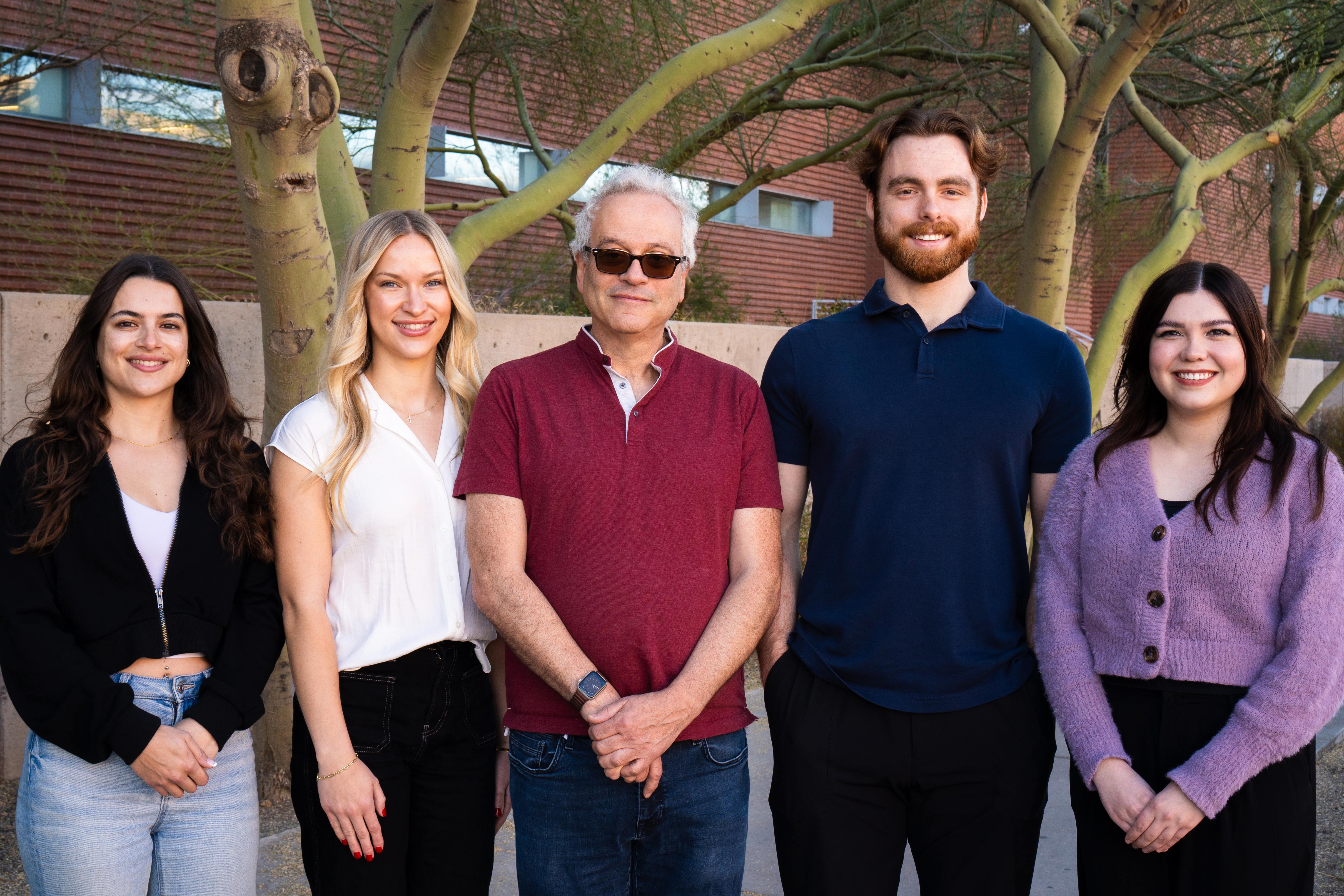
Laboratory in Affective Neuroscience and Epigenetics (J. Gewirtz)

Broadly speaking, our lab uses rodent models (rats and mice) to investigate biological mechanisms underlying negative affective states and drug dependence. Opioids are the most potent of addictive drugs and the primary cause of the epidemic in overdose deaths associated with substance use disorders. The major emphasis of our current research is in understanding the ways in which epigenetic regulation of gene expression is altered by opioid exposure and other environmental events to produce the “addicted brain”. Such epigenetic mechanisms presumably underlie not only the long-term changes in affective states and behavior that are characteristic of addiction and other mental health disorders, but also individual differences in vulnerability to acquiring these disorders and in their persistence once acquired. To this end, our research makes use of Next-Generation and Third-Generation Sequencing tools to identify genome-wide alterations in gene expression and underlying regulatory mechanisms associated with an animal’s propensity to exhibit addictive behavior or the risk of future addictive behavior.
Jonathan Gewirtz, PhD, Professor, Lab Director & Principal Investigator.
Dr. Jonathan Gewirtz received a Bachelor of Science degree in Psychology at the University of Manchester, UK and a Master’s degree in Psychology at Tel Aviv University, Israel. He gained a PhD in Psychology at Yale University studying fear and anxiety in the lab of Michael Davis. Following a brief post-doc at Yale, he joined the faculty of the Psychology Department at the University of Minnesota in 2000, with a secondary appointment in the Department of Neuroscience. He has been Professor of Psychology at ASU since 2022, where he also directs the Interdisciplinary Undergraduate Program in Neuroscience. When not engaged in teaching or research, he enjoys the alchemy of cooking for family and friends.
Daniel Chambers, Lab manager.
Daniel graduated from Arizona State University in the Spring of 2023 with a BS in Neuroscience and a Minor in Business. His research interest led him to the Gewirtz lab where he is eager to broaden his understanding of Epigenetics and Behavioral Neuroscience. Outside of the lab, he enjoys exercising, doing muay thai and jiu-jitsu, and spending time with friends and family.
Doctoral Students
Renee Laurenzana, doctoral student.
Renee is a PhD student in the Interdisciplinary Graduate Program in Neuroscience (IGPN). She obtained her B.S. in Biological Sciences from California State University San Marcos. In her spare time she likes to read, paint, play the piano, and go to the gym.
Payten Romero, doctoral student.
Payten is a graduate student in the Psychology, Behavioral Neuroscience- Comparative Psychology Program. She obtained her BS degree in Neuroscience at ASU, and her current research interests are examining biological mechanisms of negative affective emotions and opioid addiction. Her hobbies include painting/sketching and watching films.
Undergraduate Students
Elise Gasson, undergraduate student.
Elise is a third-year student at Arizona State University pursuing a Bachelor of Science in Neuroscience. She joined the lab in December 2023, in hopes to strengthen her research skills and expand her knowledge on the epigenetic mechanisms in the brain. Outside of the lab, Elise enjoys traveling, cooking, and spending time with family and friends.
Liu, S. X., Barks, A. K., Lunos, S., Gewirtz, J. C., Georgieff, M. K., & Tran, P. V. (2021). Prenatal Iron Deficiency and Choline Supplementation Interact to Epigenetically Regulate Jarid1b and Bdnf in the Rat Hippocampus into Adulthood. Nutrients, 13(12), 4527. PMCID: PMC8706459.
Liu, S.X., Gades, M.S., Swain, Y., Ramakrishnan, A., Harris A.C., Tran, P.V., & Gewirtz, J.C. (2021). Repeated morphine exposure activates synaptogenesis and other neuroplasticity-related gene networks in the dorsomedial prefrontal cortex of male and female rats. Drug and Alcohol Dependence. https://doi.org/10.1016/j.drugalcdep.2021.108598. PMCID: PMC8026706.
Swain, Y., Waller, N.G., Gewirtz, J.C., & Harris, A.C. (2021). Individual differences in different measures of opioid self-administration in rats are accounted for by a single latent variable. Frontiers in Psychiatry. https://doi.org/10.3389/fpsyt.2021.712163. PMCID: PMC8453143.
Swain, Y., Muelken, P., Skansberg, A., Krueger, M., Motz, D., Haave, Z., LeSage, M.G., Gewirtz, J.C., & Harris, A.C. (2020). Higher anhedonia during withdrawal from initial opioid exposure is protective against subsequent opioid self-administration in rats. Psychopharmacology. https://doi.org/10.1007/s00213-020-05532-w. PMCID: PMC7354901.
Matveeva T.M., Pisansky M.T., Young A, Miller R.F., Gewirtz J.C. (2019). Sociality deficits in serine racemase knockout mice. Brain and Behavior. 2019;00:e01383. https://doi.org/10.1002/brb3.1383. PMCID: PMC6790321.
Kennedy, B.C., Tran, P.V., Kohli, M., Maertens, J.J., Gewirtz, J.C., & Georgieff, M. (2018). Beneficial Effects of Postnatal Choline Supplementation on Long-Term Neurocognitive Deficit Resulting from Fetal-Neonatal Iron Deficiency. Behavioural Brain Research, 336, 40-43. PMID: 28811181.
Pisansky, M.T., Hanson, L.R., Gottesman, I.I., & Gewirtz, J.C. (2017). Oxytocin enhances observational fear in mice. Nature Communications, Dec 13;8(1):2102. https://www.nature.com/articles/s41467-017-02279-5.pdf. PMCID: PMC5727393
Pisansky, M.T., Young, A.E., O’Connor, M.B., Bagchi, A., & Gewirtz, J.C. (2017). Mice lacking the chromodomain helicase DNA-binding 5 chromatin remodeler display autism-like characteristics. Translational Psychiatry, 7, e1152. http://rdcu.be/tq4K. PMCID: PMC5537637.
Gewirtz, J.C., & Kim, Y.K. (2016). Animal models of behavior genetics. New York: Springer.
Contact Us
Email Dr. Jonathan Gewirtz at [email protected] for more information about joining the lab.




